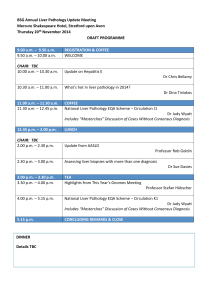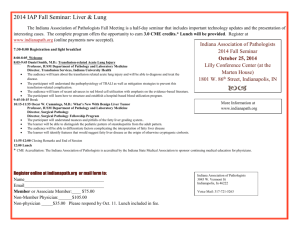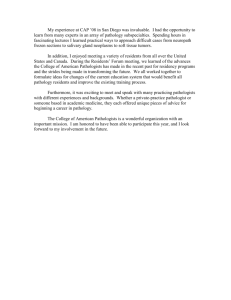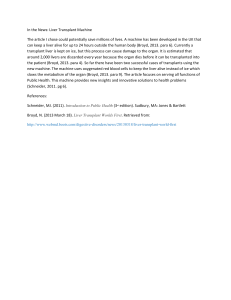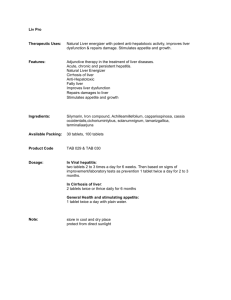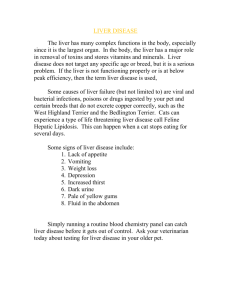Discussion document - Virtual Pathology at the University of Leeds
advertisement
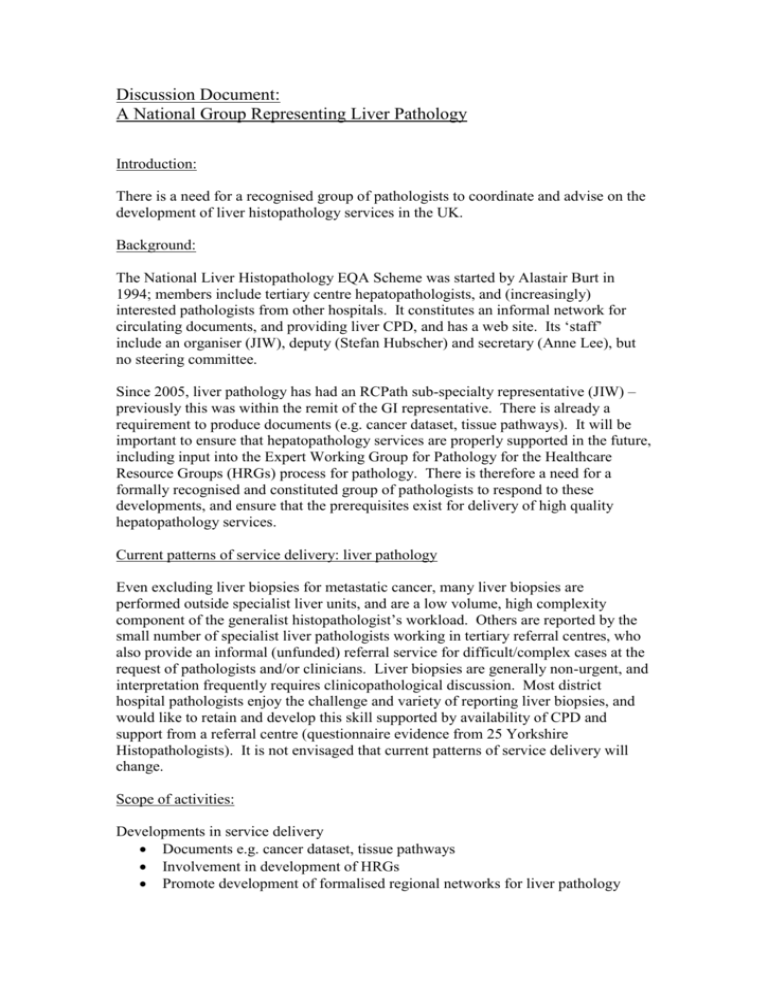
Discussion Document: A National Group Representing Liver Pathology Introduction: There is a need for a recognised group of pathologists to coordinate and advise on the development of liver histopathology services in the UK. Background: The National Liver Histopathology EQA Scheme was started by Alastair Burt in 1994; members include tertiary centre hepatopathologists, and (increasingly) interested pathologists from other hospitals. It constitutes an informal network for circulating documents, and providing liver CPD, and has a web site. Its ‘staff’ include an organiser (JIW), deputy (Stefan Hubscher) and secretary (Anne Lee), but no steering committee. Since 2005, liver pathology has had an RCPath sub-specialty representative (JIW) – previously this was within the remit of the GI representative. There is already a requirement to produce documents (e.g. cancer dataset, tissue pathways). It will be important to ensure that hepatopathology services are properly supported in the future, including input into the Expert Working Group for Pathology for the Healthcare Resource Groups (HRGs) process for pathology. There is therefore a need for a formally recognised and constituted group of pathologists to respond to these developments, and ensure that the prerequisites exist for delivery of high quality hepatopathology services. Current patterns of service delivery: liver pathology Even excluding liver biopsies for metastatic cancer, many liver biopsies are performed outside specialist liver units, and are a low volume, high complexity component of the generalist histopathologist’s workload. Others are reported by the small number of specialist liver pathologists working in tertiary referral centres, who also provide an informal (unfunded) referral service for difficult/complex cases at the request of pathologists and/or clinicians. Liver biopsies are generally non-urgent, and interpretation frequently requires clinicopathological discussion. Most district hospital pathologists enjoy the challenge and variety of reporting liver biopsies, and would like to retain and develop this skill supported by availability of CPD and support from a referral centre (questionnaire evidence from 25 Yorkshire Histopathologists). It is not envisaged that current patterns of service delivery will change. Scope of activities: Developments in service delivery Documents e.g. cancer dataset, tissue pathways Involvement in development of HRGs Promote development of formalised regional networks for liver pathology CPD – encompassing A course in basic good practical liver biopsy reporting EQA scheme Update meeting – advances in liver pathology Liver CPD during national pathology meetings. Work with organisations (BSG, BASL, RCPath, Pathological Society, ACP, BDIAP) to ensure that liver histopathology is supported and developed in line with clinical service provision Potential role in research e.g. in collecting national data relating to primary liver cancers and rare liver diseases. Training Providing opportunities for SpRs (pre-exam) to spend short amounts of time in departments with a hepatopathology interest, to improve their liver pathology To provide opportunities (training fellowships?) for pathologists in training to develop enough expertise in liver pathology to be able to take up consultant posts with a major liver interest. Administrative support: ? through a Liver pathology subcommittee of Pathology Section of BSG. Membership: could include liver pathology members of BSG Pathology Committee and BASL Committee, EQA organiser, elected members from the liver EQA membership, clinician representative. Meetings: at BSG meetings (March) and BASL meetings (September) and email communication between formal meetings. JIW 08.02.07
